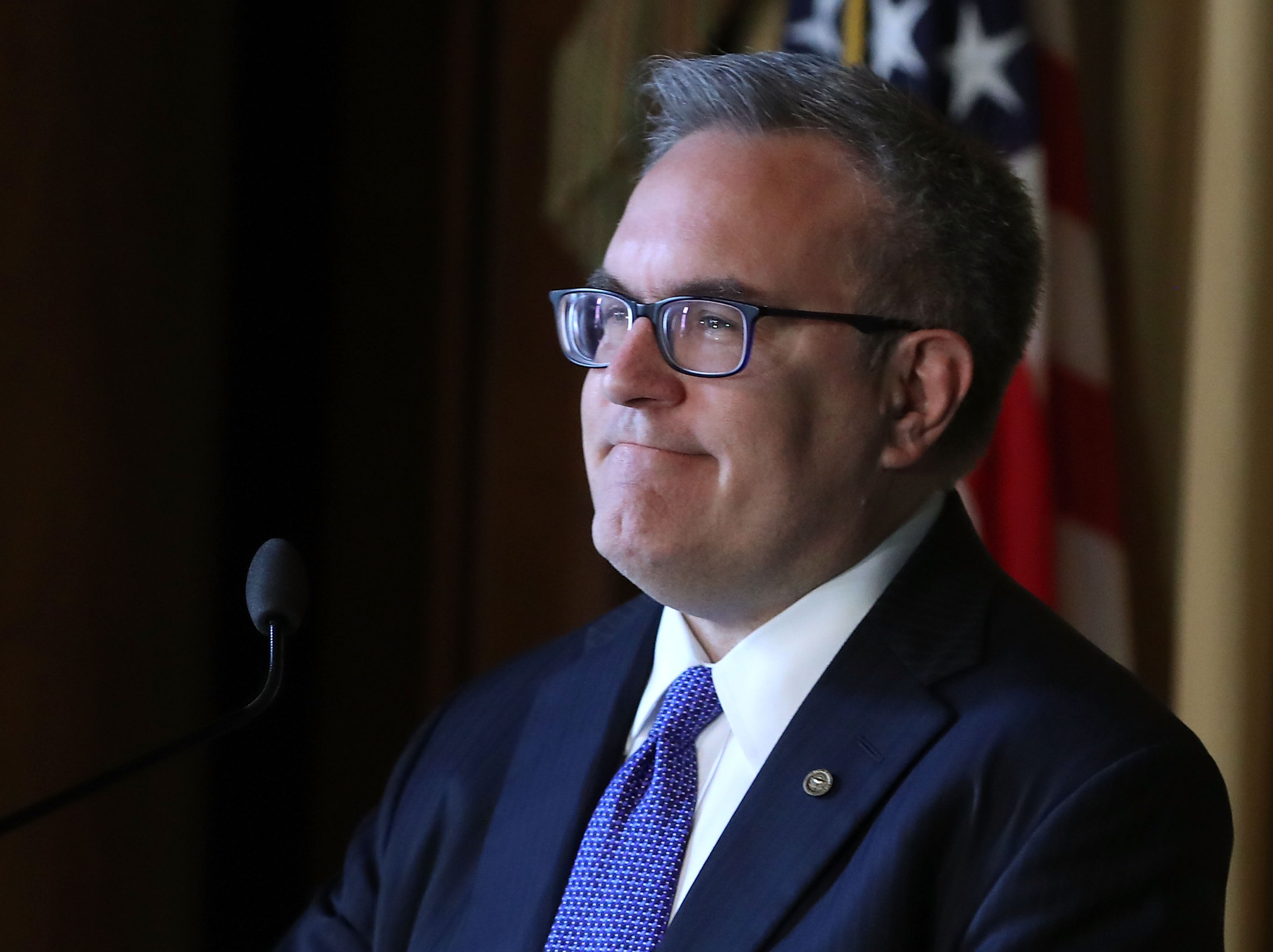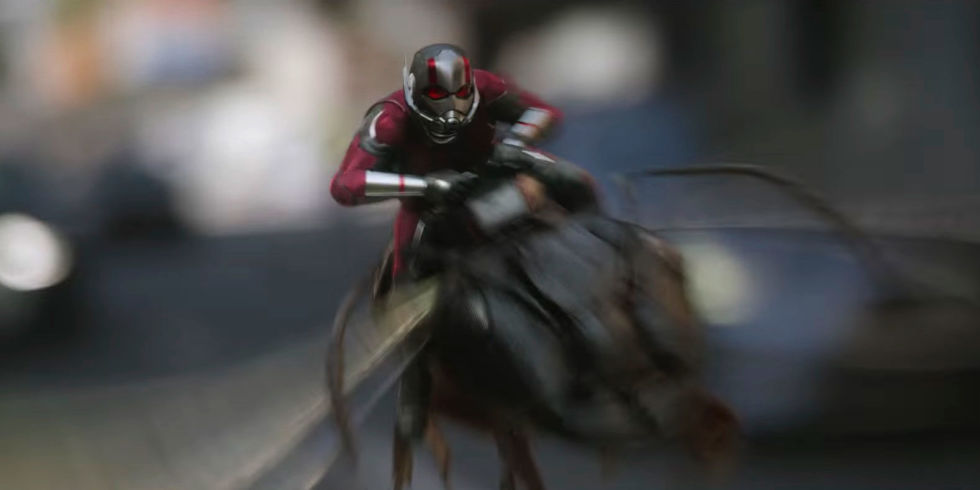A weekly newsletter for Pacific Standard Premium members.

(Photo: Mark Wilson/Getty Images)
Your Five Essential Reads
A rundown of five of our most important and timely stories from the past week.
- Back in 2012, Dwight and Steven Hammond were convicted of committing arson on federal lands, and sentenced to five years in prison. This decision ignited one of the most notable lands rights protests in recent years, when Ammon Bundy—of the now-notorious Bundy clan—led an armed occupation of the Malheur National Wildlife Preserve in 2016. This week, President Donald Trump pardoned both Hammonds of their crimes and, in the process, handed a big win to ranchers like the Bundys. As Leah Sottile writes in her piece about this newest chapter in a long-running dispute, “To [fully] understand Trump’s pardon, you’ve got to look back to one of the oldest fights in the American West—one that you could argue started in 1976 with the passage of the Federal Land Policy and Management Act.” Read Sottile’s piece here.
- Acting administrator of the Environmental Protection Agency Andrew Wheeler gave his first speech to staffers since the resignation of embattled former administrator Scott Pruitt. Staff writer Francie Diep attended the event and says that Wheeler offered some hints as to how the EPA will be run under his leadership. Republicans on the Hill are in no rush to replace Wheeler as head of the agency, as it would likely set off another partisan fight in Congress prior to an already contentious mid-term election season. Read Diep’s coverage here.
- On Thursday, a group of scientists sent an urgent letter to California Governor Jerry Brown beseeching the late-term politician to phase out oil and gas production in the Golden State, a move they say is essential in keeping with the state’s sparkling environmental reputation. Staff writer Kate Wheeling spoke with Shaye Wolf, the climate science director at the Center for Biological Diversity, who notes another driving factor behind the letter: “The state climate targets for 2020, 2030, and 2050 are not strong enough to meet the Paris Agreement’s climate goals. California has to do more, and we have to do more fast.” Read Wheeling’s story here.
- Amazon, Google, Foxconn, and other large corporations have seen states and cities attempt to entice them to move their operations to friendlier locales via economic incentive deals. These agreements often include massive tax breaks, sweetheart development deals, and more. But are these financial outlays worth it? As contributing writer Dwyer Gunn notes, “Given the enormous sums of money involved in these incentive packages, it’s striking how little faith economists have that these incentives actually work.” Read Gunn’s analysis here.
- “If Watts embodied the urban crisis of the 20th century, then Flint embodies that of the 21st.” Journalist Anna Clark’s new book about the Flint water crisis lays out what she calls “the American urban tragedy” in full, unflinching detail. Clark, who is a Michigan resident, spoke with contributing editor Leah Angstman about her book, aptly titled Poisoned City: Flint’s Water and the American Urban Tragedy, the human stories she collected to assemble it, ongoing flaws in emergency management, and more. Read Angstman’s interview with Clark here.

(Photo: Chip Somodevilla/Getty Images)
Dispatches: On Trump’s Decision to Tap Brett Kavanaugh for the Supreme Court
President Donald Trump selected his successor for soon-to-be-retired Supreme Court Justice Anthony Kennedy this past week. Heading into the moment he made his selection public—which felt, like so many other things during this administration, not unlike a reality show finale—the three favorites were Amy Coney Barrett, Brett Kavanaugh, and Raymond Kethledge, each of which, according to experts Pacific Standard spoke to, had their own varied stances on hot-button issues such as abortion, gay marriage, and voting rights. However, as Adam Liptak, who covers the Supreme Court for the New York Times, noted on The Daily, no matter who was chosen, each would achieve the goal of replacing a swing-vote with a reliably conservative one, thus changing the balance of the Court.
The Choice
In the end, Trump went with Kavanaugh, and, despite some wishful thinking from the left that moderate Republican senators might reject the nominee, pushing the vote for another candidate until after the upcoming mid-term elections, that seems unlikely. Vox has created a tracker that illustrates the slim probability of a no-vote—especially considering there needs to be just a simple majority from the GOP-controlled Senate for Kavanaugh’s confirmation. As contributing writers Jared Keller and Seth Masket have each noted in pieces on PSmag.com over the past week, when the majority of the Court’s members have been appointed by presidents who lost the popular vote, and then confirmed by a party that does not represent the majority of the population, a legitimacy crisis may not be too far behind.
Kavanaugh’s Record
Supposing Kavanaugh’s appointment is confirmed, how should we expect him to vote once he’s seated? Associate editor Rebecca Worby polled constitutional law and civil rights experts about their views on the nominee’s potential voting patterns. Perhaps the most notable issue in Kavanaugh’s past is his role in the creation of the Starr Report, the investigation led by independent counsel Kenneth Starr that led to the impeachment of former President Bill Clinton.
Kavanaugh has since argued against the use of independent counsels, such as the one currently being led by Robert Mueller, based on cost and the adversarial relationship they create between investigators and the president. Moreover, Kavanaugh has also stated that sitting presidents shouldn’t be subject to criminal investigations while in office. Politico outlines these stances in further detail here. These positions are sure to make interesting fodder for confirmation hearings, and, potentially, for the political fights of the near-future.
—Ian Hurley, Assistant Editor

PS Picks
PS Picks is a selection of the best things that the magazine’s staff and contributors are reading, watching, or otherwise paying attention to in the worlds of art, politics, and culture.
The Simple Joys of Ant-Man: Ant-Man and the Wasp marks the 20 entry into the Marvel Cinematic Universe, the shared cinematic world that’s full of evil but inept aliens and brawny men in brightly colored tights. Having seen most of these films, I’m well acquainted with what I’d call the “Marvel Wall”—that seemingly inevitable moment when logic falls by the wayside and we’re left with pure vapidity. Most often there is a singular culmination point for this Marvel Wall: The hero relies on some total fantastical science to defeat his nemesis.
Ant-Man and the Wasp is, to be clear, no exception to that rule. There’s no point trying to dissect the cockamamie cosmology that underpins the plot (the titular Ant-Man—real name Scott Lang, a.k.a. Paul Rudd—must enter into a … microscopic universe in order to … save something or other); better to indulge in the unorthodox chase scenes and the genuinely funny banter between Lang and his friends.
—Max Ufberg, Digital Director
PS in the News
A look at where our stories and staff surface in the national conversation.
- Contributing writer Arvind Dilawar’s story, “How Universities Facilitate Far-Right Groups’ Harassment of Students and Faculty,” was included in the Hack Education weekly news round-up.
- The Association for Psychological Science shared senior staff writer Tom Jacobs’ write-up of a Portuguese study that suggests music can help reduce hostility toward immigrants and refugees in young people.
- Vanity Fair referenced a 2014 story by Kevin Lincoln about the most politically charged World Cup matches in history for an essay about how, after this latest tournament, many Americans may finally begin to fully appreciate soccer.
- Contributing writer David M. Perry’s story about how plastic straw bans may unduly impact disabled consumers was referenced in a Teen Vogue piece on Starbucks’ decision to ban single-use plastic straws by 2020.
The Conversation
Banning Straws Won’t Save the Oceans (PSmag.com, May 31st)
- We all have to take responsibility for our impact on the planet. Even those who rely on straws. Everyone. We all are hurting the planet. Every single human. —Margaret Sloan
- Straws can be made with other materials. (They can also be reused if someone needs to use a straw.) Yes to banning plastic straws. People aren’t responsible creatures if their convenience is hindered. —churchofbasebal
Passionate Sports Fans are More Likely to Endorse Right-Wing Policies (PSmag.com, June 7th)
- Sports fanaticism highlights binary mindedness, which can be applied clumsily to far more complex issues in public policy. That gets exploited by the politically savvy with false dichotomies that play to an audiences’ leanings. Welcome to our current situation. The question is, what to do with that info that doesn’t encourage a race to the bottom? —Matt Jones
As Americans Age, Their Support for Environmentalism Declines(PSmag.com, July 3rd)
- I disagree with that statement. In my experience, it is the opposite, as we age we appreciate our environment more and our support for environmentalism increases. —Annette Mackin
- Everyone saying, “Oh no, not me, I think differently so they’re wrong and the problem doesn’t exist” need to stop and reflect. The world is bigger than you and your personal sphere of experience. Your own thoughts and feelings may, in fact, not be an accurate representation of the way others of your demographic feel and think. In all reasonable probability, the numbers aren’t lying here, and to suspect them of inaccuracy or falsehood based on your individual differences is the core of the “alternative facts” mindset. Claiming exceptionality just sounds naive and tone-deaf at best, narcissistic and virtue-signalling at worst. —Russell Parnon
California Could Become the First State to Dramatically Restrict Police Use of Force (PSmag.com June 22nd)
- So people who have never had to make a dangerous traffic stop, chase a speeding car with a felon behind the wheel, go into a dark building to route out a suspected burglar, armed unknown, stand face to face with someone who has an object in their hand, waving it around out of control, are going to tell law enforcement officers how to do their jobs. What could go wrong here? Well, start with an out-of-control criminal element that will see this as an opportunity to shot and kill cops. An opportunity to run afoul of the law, armed, and know the cops are not allowed to defend themselves. Legislators in California have made some stupid decisions like high-speed rail, sanctuary cities, and gas taxes, but this? Insanity. —Donna Cox
If you have any thoughts about this newsletter or our work—what you like/didn’t like/want to see more of—you can reach us at premium@psmag.com. If you’re not already, become a premium member by following the button below. As we continue to build out the benefits of a premium membership to Pacific Standard, we want to hear what would be most valuable to you.





